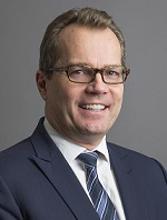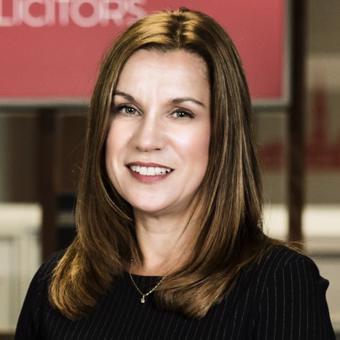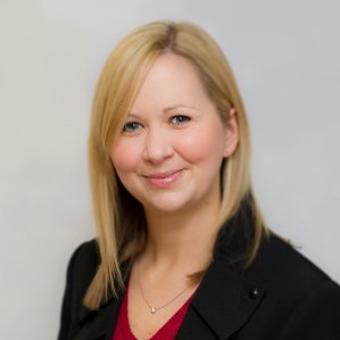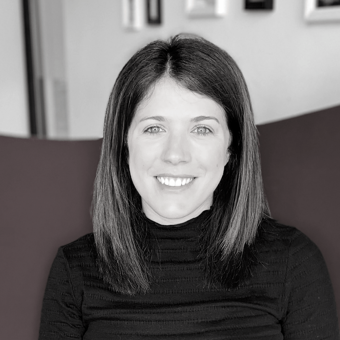Jan Heuvels – international senior partner at Ince & Co – on the firm’s London relocation, its culture, working practices & challenges
What were the key drivers of your firm’s decision to move to your new premises?
Our move to Aldgate Tower forms part of a major investment programme in our firm and people. Moving to a brand new office that takes advantage of the latest developments in office design and technology will enable us to create a more collaborative and agile working environment that encourages greater teamwork and communication and ultimately enhances the service that we deliver to our clients.
How does the design of your new premises differ from your previous office space?
All fee earners in our old space in International House sat in single or dual occupancy offices. Due to the confidential nature of the work that we carry out as lawyers, we needed to maintain certain private office areas, but have adopted an agile and open-plan arrangement for the majority of our new space.
We worked closely with Aukett Swanke, the architecture and design company, to ensure that our new space has a modern feel that takes full advantage of natural light. Based on the 14th and 15th floors of the building, we are also blessed with 360-degree views of the City.
How was the decision sold internally to the firm?
We established a working group from across our firm, including fee earners and business services staff, to work with our external advisers to gauge opinion and agree practical elements of our new office. The key elements included interior design and space planning. Regular updates were communicated to the firm at key milestones of the process and we organised a site visit for all members of staff so that they could get a first-hand feel for the space as soon as we signed the lease.
Do you have any radical plans for the new space?
In addition to creating a modern and open-plan working environment, our move to Aldgate Tower has significantly improved the facilities that we are able to offer to our clients. These include a dedicated client lounge, first-rate meeting rooms and excellent opportunities for client entertainment.
What forms of technology have you invested in to underpin this new working environment?
Our move to Aldgate Tower would not have been possible without the major investment that we have made in technology. While there was an element of agile working in place prior to our move, we used it as a catalyst to broaden and extend these practices in order to enhance client service and improve the working environment of our partners and staff.
In order to do this, we invested in Microsoft Surface Pro 4 tablets for every fee-earner and the majority of business services staff. These devices allow our people to have the same access to our systems no matter where they are located, be that in the office, at home or meeting with clients. We have also completely overhauled our networks and backend IT systems to give a much improved user experience and enhanced the flexible working capability by installing latest generation Wi-Fi in our new offices with increased capacity and security.
We are also facilitating greater collaborative ways of working both within our firm and with our clients through the use of Skype for Business. This unified communications platform encompasses video and voice calls, email and instant messaging - all accessible via the Surface Pro device which enhances flexible working and enables partners and staff to stay in contact wherever they are working.
Our new client meeting rooms benefit from the latest audio-visual technology with the flexibility to adapt to different room configurations and allow presentations to be made wirelessly from laptops and Surface Pro devices. Printing capability has been enhanced through the use of multiple large Multi Function Devices to consolidate our printing, scanning and copying needs. Together with follow-me printing, this has saved considerable amounts of office space as well as greatly reducing our use of paper.
Prior to our move, we implemented a major training programme to ensure that everyone was familiar with the new technology so that we could transition as smoothly as possible to our new location and way of working.
How will you measure the success of your office move?
The feedback that I have already received from my colleagues and clients has been unanimously positive. However, we clearly need to look at this more closely, so it will play a major part in our future employee satisfaction survey. We will also be organising a launch party for our clients and will actively use this as an opportunity to seek their feedback on our new facilities.
What will be the impact of your office move on the culture of your firm and your working practices?
The most important asset of any law firm is its people. Having a group of talented individuals is all well and good, but our aim is to establish an environment that enhances our ability to act as a high-performing team.
Our new open-plan arrangement encourages greater communication and cooperation across our various sector groups and functions. Our new agile working arrangement improves work-life balance and therefore team morale. The investment that we are making in technology and systems will enable our fee earners to concentrate more on generating work. In terms of culture, it’s a case of win, win, win.
Do you think that we will see more firms choosing to adopt similar working environments in the future?
In short, yes. It is a way of working that particularly appeals to the younger generation, as it improves work-life balance and the sense of being part of a team. From a law firm perspective, this is important as it enables you to attract and retain the best talent.
In addition, since the last global recession there has been a significant and permanent change in the legal profession. Increased competition and a hardening in clients’ attitudes towards fees will continue to encourage law firms to find ways of driving efficiencies. Adopting a more modern and efficient use of space is just one way of achieving this.
What are the key challenges that your firm is facing at the moment and what are you doing to address them?
As a whole our firm remains counter-cyclical, as traditionally a large proportion of our work comes from major international disputes in our core sectors of aviation, energy, insurance, international trade and shipping. As a result our financial performance during the last global recession was strong. In more recent years however, many of these disputes came to an end and there has been a reduced appetite for litigation more generally in our sectors. This has had an affect on our bottom line.
However, our business remains sound and we have minimal borrowings in comparison to many of our peers. Last year we concluded a restructuring of our partnership to focus on areas where we see future profitable growth. During the last few months we have also made significant progress in enhancing our transactional capability – a key strategic priority for our firm. By way of example, since January 2015 we have promoted or recruited a total of ten transactional partners and there are more in the pipeline.











